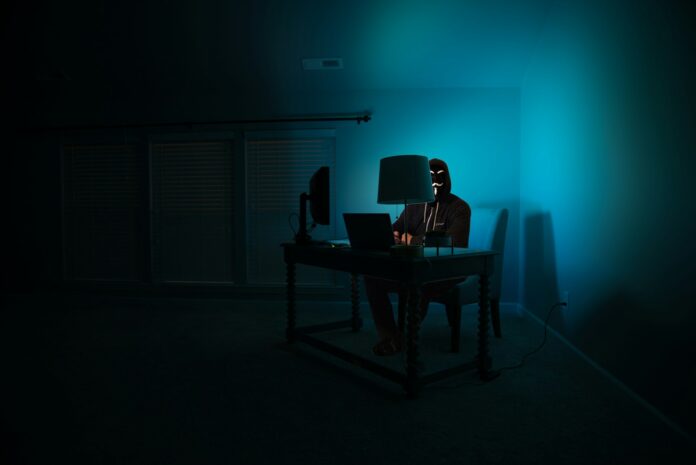South West Water warns customers of fraudulent calls regarding compensation for the parasitic outbreak in Brixham
South West Water has issued a warning after reports of scammers targeting customers affected by the cryptosporidium outbreak in South Devon. These scammers are making fake calls, claiming to be from the water company, and asking for customers’ compensation claims and direct debit details.
This week, the company found traces of cryptosporidium, a parasite that causes illness, in water samples in Brixham. A boil water notice was announced, advising residents in the affected areas not to consume untreated tap water. South West Water (SWW) has promised £115 in compensation to all affected households.
Embed from Getty ImagesSWW has reported that scammers are now calling customers in the wake of the outbreak. The company emphasized that customers do not need to take any action to receive the compensation and that SWW does not need to contact them for this purpose.
“For all household customers who have been issued with the Boil Water Notice, you will receive your compensation through an automatic payment,” SWW said in a social media post. They urged anyone receiving suspicious calls not to give out bank details and to report the scam to Action Fraud.
South West Water stated, “We have been made aware of scam calls to customers, claiming to be from South West Water, regarding direct debit details and compensation claims. We want to reiterate that we do not need to contact you, and you do not need to do anything.”
“For all household customers who have been issued with the Boil Water Notice, you will receive your compensation via an automatic payment. For business customers, this payment will be made through your retailer.”
“Where we have direct debit details, this will be made as an immediate payment. Where we do not, this will be added as a credit to the next available bill. If you receive a suspicious call: Stop! Do not give out any bank details. Report the scam call to Action Fraud and inform your family and friends.”
The latest figures from the UK Health Security Agency reveal that confirmed cryptosporidium cases have risen to 46 since Wednesday, May 15, when only 22 cases had been confirmed. Approximately 100 more people are experiencing similar symptoms, and the number of cases is expected to increase further.
The infected supply area now includes Boohay, Kingswear, Roseland, and North West Paignton. SWW has issued a boil water notice to about 16,000 households and businesses in the area. Residents are advised to boil any water used for drinking, cooking, preparing food, or brushing teeth and to let it cool completely before using.
Cryptosporidium is predominantly a waterborne disease, and infections can be caused by drinking contaminated water or swallowing contaminated water in swimming pools or streams. It can also be contracted through contact with animals or humans. Further information about boil water notices can be found on the Drinking Water Inspectorate’s website.
In-depth analysis
The cryptosporidium outbreak in Brixham highlights several critical issues, ranging from public health and safety to the vulnerabilities exploited by scammers during crises. Politically, this situation may lead to scrutiny of local government and utility companies’ preparedness and response to public health emergencies. The outbreak and subsequent scam calls could erode public trust in these institutions, prompting calls for improved transparency and communication.
From a sociological perspective, the outbreak and its management reveal the community’s resilience and solidarity. Residents affected by the boil water notice must navigate the immediate health risks while adapting to new routines, such as boiling water for daily use. The scam calls further stress the community, exploiting their vulnerability during a crisis. This situation underscores the importance of community support networks and the role of social media in disseminating critical information and warnings.
Economically, the cryptosporidium outbreak has significant implications. Local businesses, particularly those in the hospitality sector, face challenges as tourists and residents may avoid affected areas, leading to a decline in revenue. The compensation provided by South West Water, while helpful, may not fully cover the financial losses incurred by businesses. Additionally, the costs associated with managing the outbreak and ensuring safe water supplies may strain the water company’s resources.
The outbreak also raises questions about the adequacy of infrastructure and regulatory oversight. Ensuring the safety of water supplies requires substantial investment in infrastructure maintenance and upgrades. The detection of cryptosporidium indicates potential weaknesses in these systems, necessitating a thorough review and possibly more stringent regulations to prevent future incidents.
From a public health perspective, the outbreak underscores the need for robust monitoring and rapid response mechanisms. Cryptosporidium is a challenging parasite to manage due to its resistance to standard disinfection methods. Public health authorities must ensure that affected individuals receive appropriate medical care and that preventive measures are effectively communicated to minimize the risk of further infections.
In terms of marginalized and vulnerable populations, such outbreaks disproportionately impact those with limited access to resources. Elderly individuals, children, and people with compromised immune systems are particularly at risk from cryptosporidium infections. Ensuring that these groups receive adequate support and clear information is crucial in mitigating the outbreak’s impact.
In summary, the cryptosporidium outbreak in Brixham serves as a stark reminder of the multifaceted challenges posed by public health emergencies. It highlights the need for coordinated efforts across political, economic, and social spheres to protect communities, support affected individuals and prevent future incidents.
